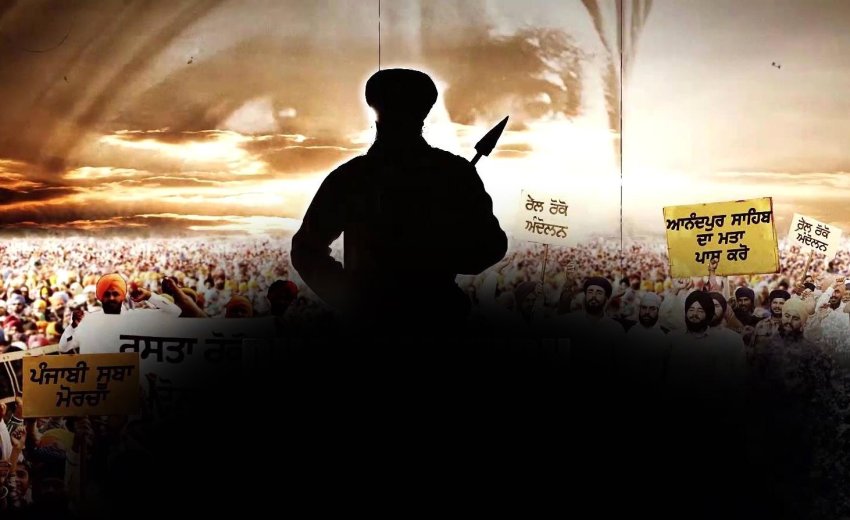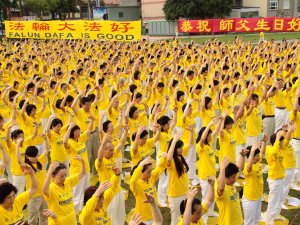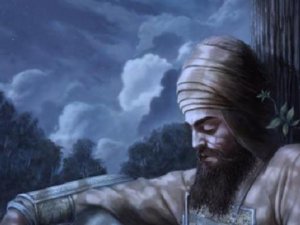Dittia Baaj Nahin Rehna Dharam Sar
"We will not live until we sacrifice ourselves in the ongoing struggle for righteousness, Until then, we do not really live."
This was sung throughout the Dharam Yudh Morcha, Punjab, in the largest pro-democracy civil disobedience movement in India during the 1970’s as India’s prime minister strangled democracy and created dictatorship under the ruse of Emergency. It was in the hearts of those who had come to join the largest mass protests in the Punjab in the 1980’s as the Indian army attacked and militarily occupied the Punjab, attacking the Sikh’s holy heart, Amritsar in 1984. India’s plan to mass murder Sikhs was realised in the ten year Sikh genocide but still the Sikhs kept singing this in their hearts.
The Indian state’s answer to a decade’s long Sikh pro democracy movement for democracy in India was planned systematic, systemic, state violence and genocide against the Sikhs from 1984.
It was on the lips of our ancestors, shouted from their throats for centuries…Dittia baaj nahin rehna…..captured the imagination of so many generations.
The plea is deadly serious. We do not live, we do not truly live, until we sacrifice ourselves for our values, our struggle for righteousness, for the struggle for goodness…It was epic, ancient, zealous…and earth shattering.
Sans sacrifice we cannot keep our faith….Sans sacrifice we are nothing…
Faith will keep evolving.
The imagination of millions was caught.
Civil disobedience leaders like Sant Kartar Singh and Sant Bhindranwale would revive the spirit of our ancient spiritual warrior heritage throughout the 1970’s and 1980’s pro democracy movement.
We are a sacrifice for the struggle of righteousness and we change this world for the good. The guise of the empire does not matter. The guise of the leader, who their friends in the UN are, we will shatter their illusions and not stop until the innocent are protected. The search for God will keep growing through Sikhi. Even as the states and the rulers and the world powers, whoever they are, will try to destroy the innocent and allow their abuse, we shall be sacrificing ourselves to our faith which grows and grows.
We seek The Eternal Waheguru.
We will be the people who protest to protect the persecuted and we will chain ourselves to rails. We will protest so much that the dictatorship will run out of jail space. Just as we exposed India’s deadly democracy while Indira Gandhi’s dictatorship locked up the opposition, removed Supreme Court judges, tortured thousands and censored the press for years, we protested so much that India had to lock us up in schools, and on buses because the Punjab ran out of jails in the 1970’s and 1980’s.
I don’t know if we can grasp the concept of a wide civil disobedience such as this - where a country literally runs out of space to jail the protestors including old men, old women, young men and young women.
In the 1980’s the pro democracy movement became a pro Punjab autonomy movement. It struggled to stop the ghettoising of Punjab, the proliferation of drugs, the proliferation of illegality, corruption, and the degradation of the Sikhs. It worked to stop the torture of Sikhs and political dissidents against a backdrop of state crimes, state sponsored media propaganda about the Sikh identity designed to flare race hatred against the Sikhs.
The dwindling martial tradition of spiritual warriors defended the freedom of religion for centuries in India along with the independence of religious institutions as they fought for the whirlwind of political rights and religious rights denied by post colonial India since 1947, when grass roots Sikhs disagreed with new leadership on the set up of Punjab after the British left.
Many joined in the 'Ditia Baaj Nahin Rehna' - epic struggles with people who tested India’s democracy to the limit. Then the state used state violence and military power to try to destroy the Sikhs in 1984 and hurled the Sikhs into genocide and suffering.
In the 1980’s the Sikhs sacrificed their homes and family lifves to join life-long struggles. They rarely saw their families, unless those families joined the protests. In fact, whole families would camp both outside and inside Amritsar. People protested for their right to democracy and their right to life. India met these beautiful Sikhs with bullets, torture, and jail as they faced the start of this horrific genocide.
At times when we wonder if the world of democracy in the West could have done more, we have to remember those epic heroes and heroines who sweltered and starved in buses as protestors, who were battered in protests until their bodies could not get up. We have been at the forefront of peaceful struggle for centuries - but ultimately we never relent to tyranny and we go beyond our relatively secure, free lives and remember the voices of oppression which will always leave dictators to their own internal affairs as they use sovereignty as an excuse to crush their people.
As we hear of the terrible bombs being dropped on Aleppo, brave doctors like Dr. Hamza Al Khatib let us know of the plight of the last few medics who are trying to stay with the people of Aleppo, refusing to leave. (link to petition)
He writes:
"I am one of the very last doctors serving the remaining 300,000 citizens of eastern Aleppo…For five years, we have borne witness as countless patients, friends and colleagues suffered violent, tormented deaths. For five years, the world has stood by and remarked how ‘complicated’ Syria is, while doing little to protect us.
Last month there were 42 attacks on medical facilities in Syria, 15 of which were hospitals in which my colleagues and I work. At this rate, our medical services in Aleppo could be completely destroyed in a month, leaving 300,000 people to die.
What pains me and my fellow doctors the most is choosing who will live and who will die. Young children are sometimes brought into our emergency rooms so badly injured that we have to prioritise those with better chances, or simply don’t have the equipment to help them. A few weeks ago, four newborn babies gasping for air suffocated to death after a blast cut the oxygen supply to their incubators. Their lives ended before they had really begun…”
His petition urges the powers across the world to help as the brave White Helmets carry on sacrificing their life to protect the innocent.
We all forgo our right to live, when we see those who are forced into human trafficking and sex slavery, when there are paedophiles preying on the young and when the innocent are being bombed in far off lands.
We can crush the bubble of illusion: that this life of apparent safety - getting good professional jobs, getting promoted, filling our cars with tanks of petrol, meeting our friends for dinner, grabbing a latte, having a roof over our heads, dropping the kids off at school, and wondering if we will ever have time for ourselves. We can crush this bubble of illusion and we can take those steps forward to become forces that will keep protesting to protect the innocent from oppression. For we will die chained to the railings to stop all the atrocities committed far away, not just on our doorstep. This is the epic Sikh tradition.
It is said that 'Dittia Baaj Nahin Rehna' was said to Bhai Mati Das Ji, a beautiful, brave Sikh. Even as the Mughal empire that exercised tyranny through oppression through Aurangzeb offered a princess for the young Mati Das Ji to marry in order to bribe him and to buy his loyalties, he had the ferocity to say "I will wipe out the empire within a blink of the eye." Guruji said to Mati Das Ji- "This is the time for sacrifice…" For his resistance against the evils of empire as well as his bravery Bhai Mati Das Ji was tortured to death, cut in half through his head and down through his body.
Let us remember the epic resistance movement we have all been part of since time immemorial and move closer to the words of our ancestors: "Dittia Baaj Nahin Rehna."
Simarjit Kaur, Author of Saffron Salvation, the first novel on the Sikh genocide in India, now in its third edition; Human Rights Activist; World Sikh Awards Nominee, 2013 (TARAN: "Set up the first medical program at grass root level for survivors in post conflict Punjab and funding it from a decade of her own savings." Justice Bains, PHRO)
Saffron Salvation was the theme of a talk at the Genocide Scholar's conference on Art in Post Conflict and post genocide worlds. TARAN Findings on 'The Pllight of Widows of Extra judicial killings' were shared at UNWomen, Vrindavan, India 2014.
RESOURCES:
Simarjit Kaur Lecture - at Queens University Belfast on the Oppression of Lawyers in Times of Conflict
1. Simarjit Kaur delivered a presentation on the situation of lawyers in India. Presented at the 'Challenging the Oppression of Lawyers in Times of Conflict Conference at Queen's University Belfast on 13 November 2013.
2. 1984 Survivors of Sikh genocide Taran- A small documentary on the genocide survivors who have not been helped.
3. TV84 News 7/14/14 Interview with Simarjit Kaur - Author And Human Rights Activist U.K on the Arts/Conflict/Diaspora Views (in Punjabi)
4. Encounters with Simarjit Kaur from the Taran Project- Community TV interview on the background behind the work with widows of extra judicial killings in Punjab.
5. Interview with TARAN team member Simarjit Kaur on Canadian community TV. (In Punjabi)
7. A Plea from the People of Aleppo
8. Democracy Now segment: Nearly 1 million Syrians living under siege and the last remaining hospitals in eastern Aleppo have been destroyed.






